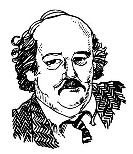(Syndicated to Kansas newspapers Jan. 9, 2017)
 Statehouse insiders, and probably even Kansans who don’t follow state government activity as a condition of probation, are figuring it may take two, maybe three weeks to determine whether we’re looking at a strictly political 2017 Legislature or a hold-your-nose and fix the problem session.
Statehouse insiders, and probably even Kansans who don’t follow state government activity as a condition of probation, are figuring it may take two, maybe three weeks to determine whether we’re looking at a strictly political 2017 Legislature or a hold-your-nose and fix the problem session.
Now, the politics are fun, the strategies intriguing, but at some point, we must remind ourselves that we live in Kansas.
The options are relatively simple. It’s trim the budget, raise revenues (that’s the word lawmakers like to use instead of “taxes”) and still provide for the education, health, highways, public safety and such that we expect state government to take care of. Or, it’s not vote for anything unpleasant, shift the current responsibilities of state government to cities and counties, and talk about “local control.”
Frankly, at this point, nobody is sure which way the Legislature is going to go. It appears Gov. Sam Brownback is taking himself out of the picture, with a budget that was held secret until his State of the State address and his now familiar “It’s the Legislature’s responsibility to balance the budget” mantra.
So, what happens?
There’s some interest in those new legislators starting their own caucus, and since most of them were elected on the widely popular premises (a premise is just shy of a promise) they are going to put taxes back on Limited Liability Corporations (LLCs) and improve school funding, they may be key players. Or…they might decide that they are not going to get re-elected if they make some votes that will inconvenience their constituents.
That freshman caucus might make its first priority figuring out a chant or a bumper sticker that implores Kansans to disregard their votes in their first year in office, and decide on re-election based on the second year of their terms.
Politically, the other track in which the Legislature becomes sharply divided is for those newbies to decide that the returning legislators caused the problem with their votes for tax cuts, and tax hikes to fill in the hole the cuts created, and see whether voters will toss out all the experienced lawmakers. It can be done on a new/old decision by voters in two (House) and four (Senate) years. And, it will give the candidates for governor in 2018 something to campaign on.
Or, without the new/old lawmaker gambit, there’s a strictly party-line option. Now that Democrats have increased their numbers in each chamber (by a dozen in the House for a new 85R/40D count, and narrowly in the Senate, to a new 31R/9D count), Democrats could simply vote to tax LLCs and then quit voting.
Huh? Yes, there’s a political undercurrent among some Democrats that Republicans have run the state since conservative Brownback’s first term and Democrats are going to sit politely and quietly and watch Republicans fight each other to get the budget balanced.
That might make Republicans the only legislators with their DNA on the unpleasant budget fixes and tax increases needed. It would make Democrats look pretty un-involved in the business of state government, but ready to point at the Republicans for the pain needed to heal the budget. Or, of course, it also would mean Republicans take credit for fixing the budget, and, they, not Democrats, fixed things.
This 2017 can go several different ways, depending on how key players decide they want to go with it, and whether there are new members who are first interested in fixing the state and then considering, after their first jobs where someone else will buy their lunch and probably drinks, how their votes are going to look on a campaign palm card in a couple years.
We’re figuring we may be able to tell which road the Legislature will take in two or three weeks.
It’s going to take longer than figuring out whether that first date is going to lead to anything, but then, that date didn’t determine state tax policy, did it?
